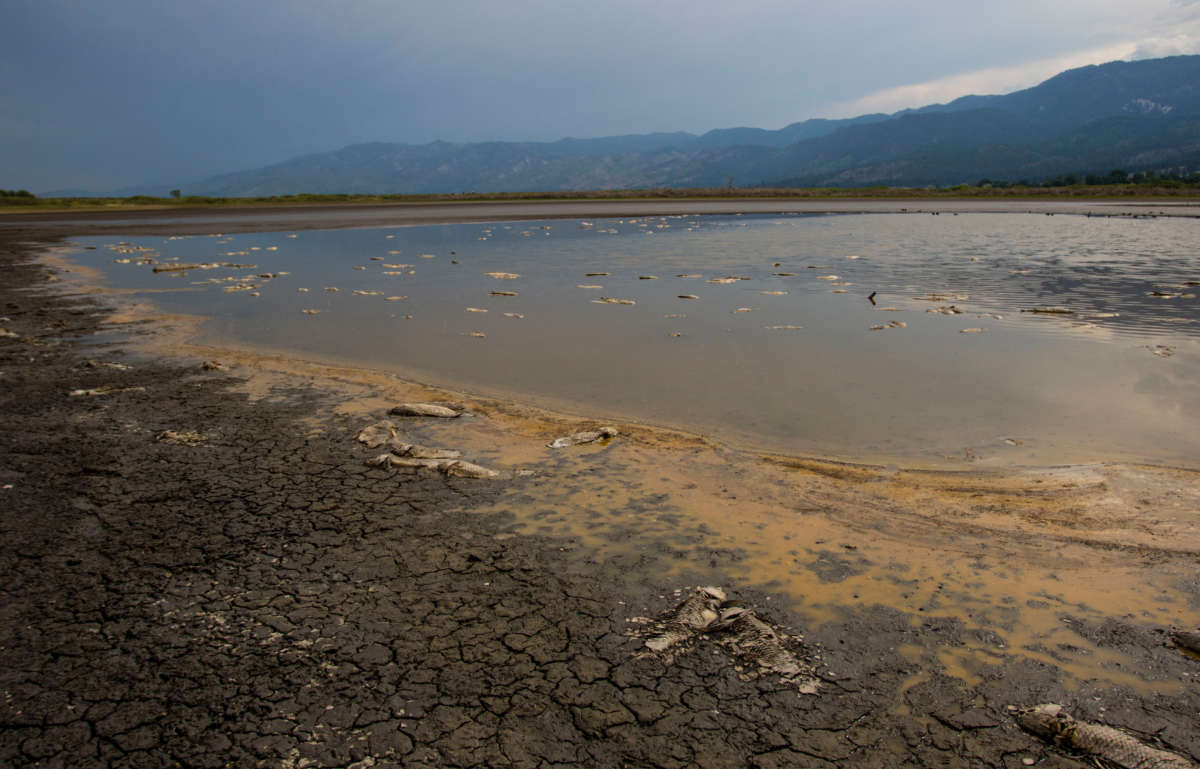Honest, paywall-free news is rare. Please support our boldly independent journalism with a donation of any size.
Frustrated by the sidelining of the climate crisis in recent infrastructure negotiations between the White House and a bipartisan group of senators, House progressives have sent a letter to House leadership demanding action on the climate in the form of a Green New Deal and climate provisions in the infrastructure bill and the Democrats’ upcoming reconciliation bill.
“As the urgency to invest in public climate infrastructure and jobs intensifies each day, we urge you to work with us to deliver robust and lasting investments at a scale that directly addresses the climate crisis,” the progressives, led by Rep. Cori Bush (D-Missouri), wrote to House leaders Speaker Nancy Pelosi (D-California), Majority Leader Steny Hoyer (D-Maryland) and Majority Whip James Clyburn (D-South Carolina), as reported by CBS.
Indeed, over just the past weeks, the U.S. has been hit with climate emergency after climate emergency. The western U.S. experienced a record heat wave and is bracing for another. “Firenados” are becoming more frequent in California and New York City’s subways are flooding before tropical storm Elsa has even hit the region. Meanwhile, the Gulf of Mexico caught on fire due to an oil spill.
Most, if not all, of these emergencies have been brought on and worsened by the climate crisis. Yet, over the past weeks, as the country was hit with overlapping and seemingly unending climate disasters, the White House accepted drastic cuts to its infrastructure plan — including measures that would address the crisis.
The letter, which was signed by progressives like Representatives Alexandria Ocasio-Cortez (D-New York) and Pramila Jayapal (D-Washington), as well as other member of the “squad,” calls for stronger and more immediate measures to address the climate crisis than the White House is currently proposing.
“We are very concerned that the American Jobs Plan (AJP), and more so the bipartisan compromise as it presently stands, will not reduce the greenhouse gas emissions that are driving the climate crisis to the extent that science and justice require,” the 11 representatives wrote. “We need a jobs and infrastructure plan that meets demands laid out in the Green New Deal.”
The lawmakers, while encouraged by Democrats’ growing calls of “no climate, no deal” on the infrastructure bill, say that the White House needs to push funding for frontline communities, provisions for tribal sovereignty and labor protections. They also emphasize that strong climate provisions are vital for the upcoming reconciliation bill.
Their list of priorities for the bill include proposals like $1 trillion for developing public renewable energy with union-backed workers, $250 billion for climate justice funding, $600 billion for public transportation and electrification of the public transit sector, and money for public housing and a Civilian Climate Corps.
“Any investments we make should prioritize frontline communities, ensure respect for tribal sovereignty, and include strong labor standards and protections,” the letter read. “This is the very least we can do to avert the worst of the climate crisis. Anything less would be unacceptable and an abdication of our global responsibility.”
Progressive lawmakers have also been emphasizing the importance of immediate climate action online, taking aim at Republican and moderate arguments that action on the climate crisis is too expensive or that bipartisanship is necessary to legislate in Congress.
I’m so glad the filibuster is here to fix this oh wait https://t.co/5i7Ki0bk9b
— Alexandria Ocasio-Cortez (@AOC) July 8, 2021
“Firenados in northern California. Ocean fires in the Gulf of Mexico. Subway waterfalls in New York City. A heat dome in the Northwest melting power cables, killing hundreds and frying marine animals,” wrote Sen. Bernie Sanders (I-Vermont) on Friday. “I have been told that combatting climate change is expensive. Compared to what?”
Press freedom is under attack
As Trump cracks down on political speech, independent media is increasingly necessary.
Truthout produces reporting you won’t see in the mainstream: journalism from the frontlines of global conflict, interviews with grassroots movement leaders, high-quality legal analysis and more.
Our work is possible thanks to reader support. Help Truthout catalyze change and social justice — make a tax-deductible monthly or one-time donation today.
